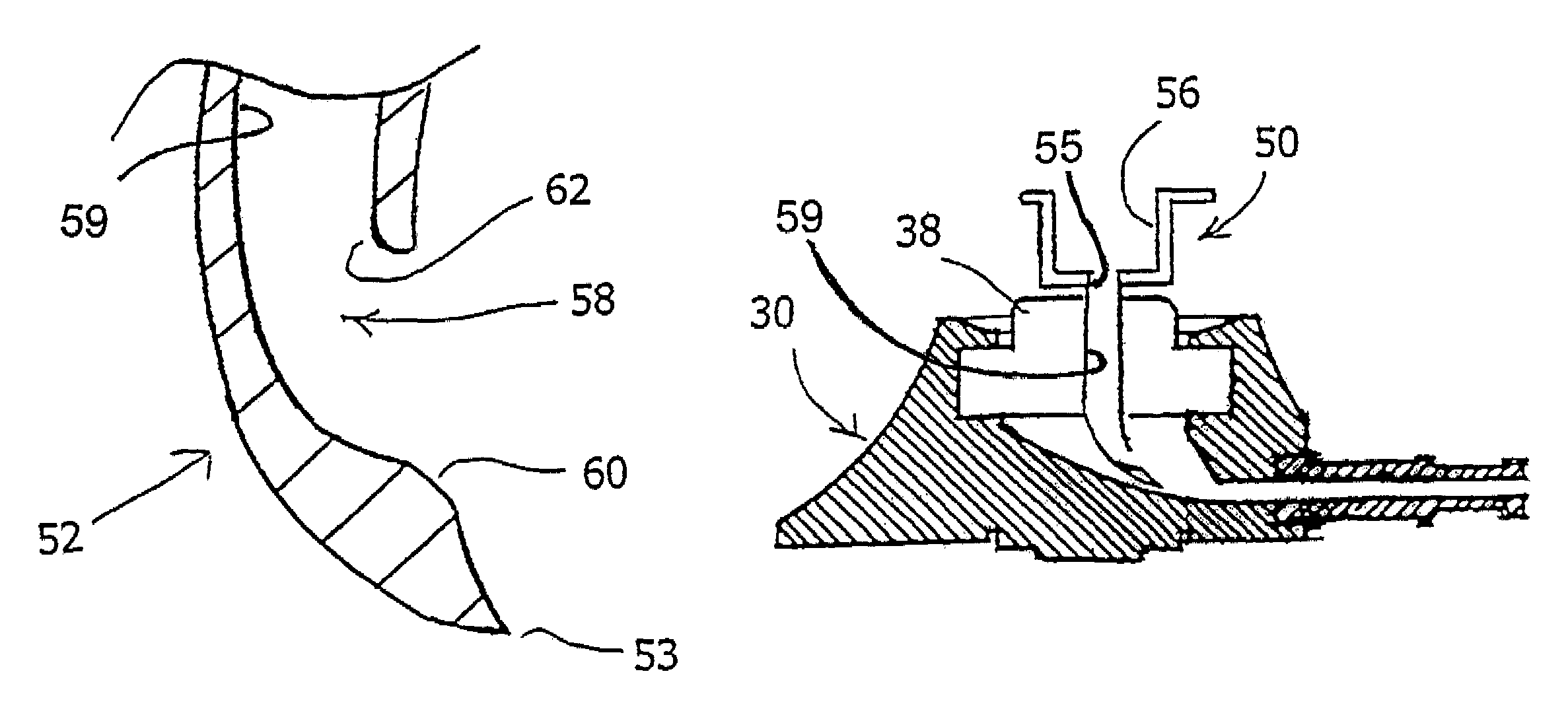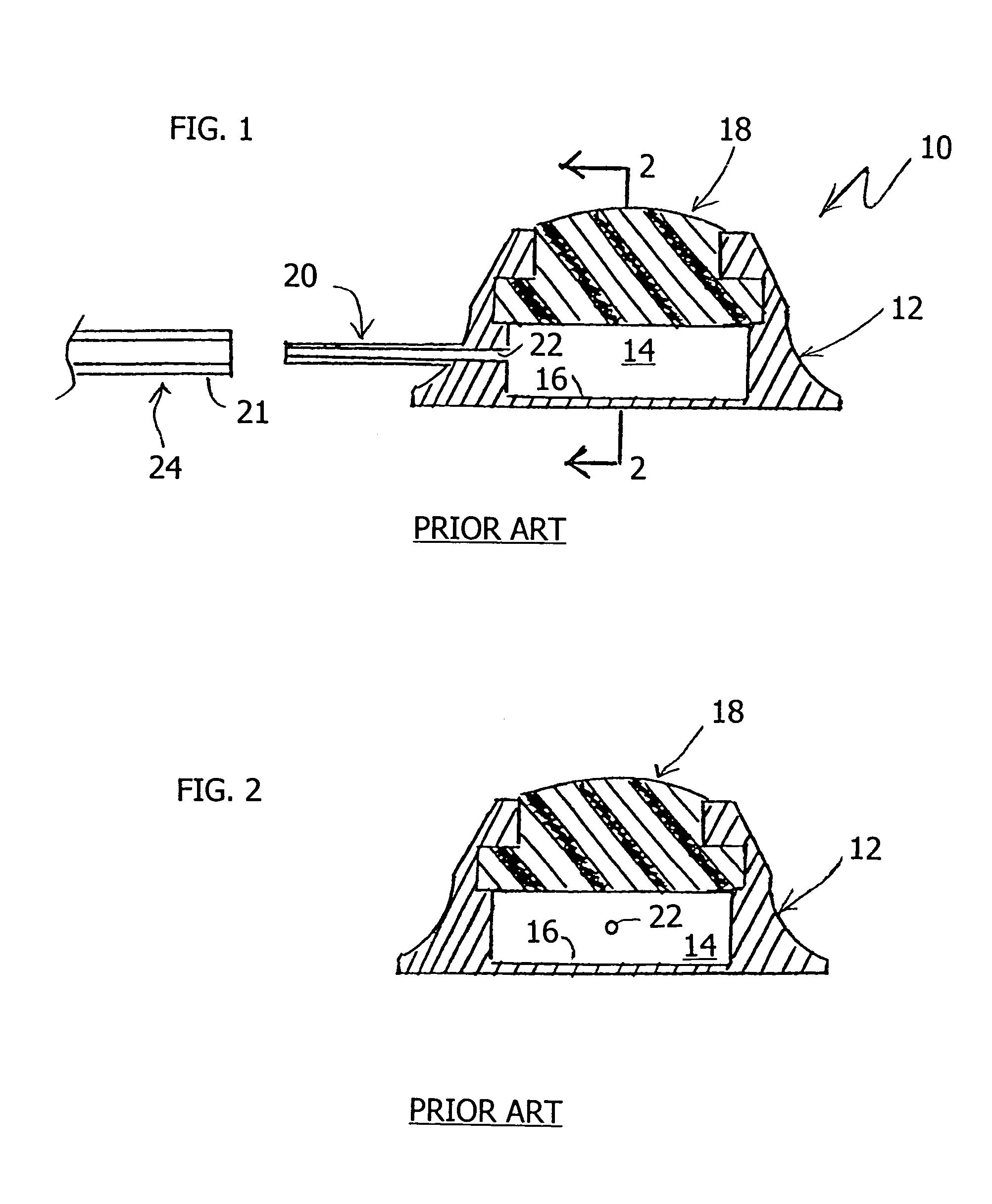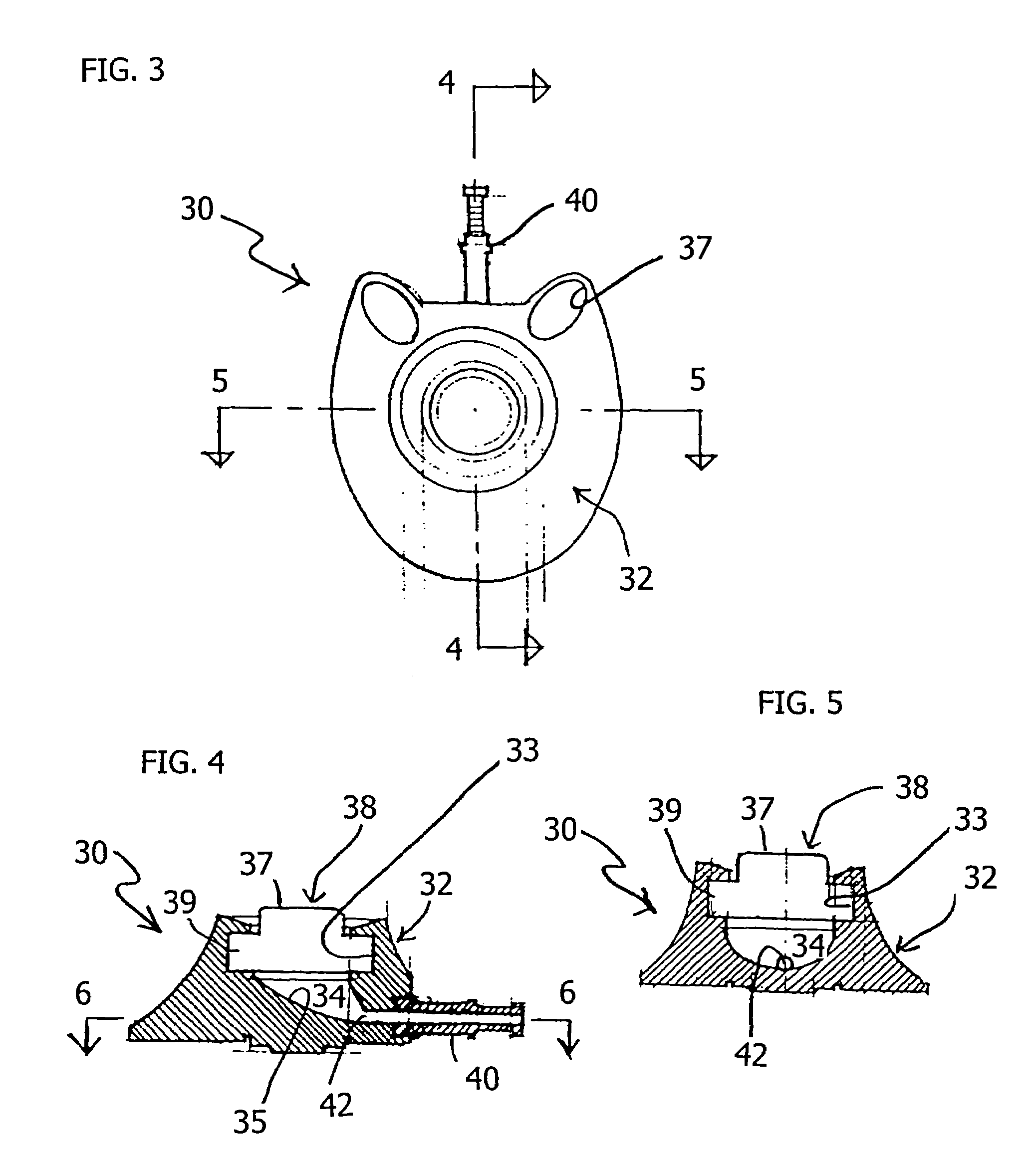Subcutaneous vascular access port, needle and kit, and methods of using same
a technology of subcutaneous vascular access and access port, which is applied in the direction of medical devices, other medical devices, etc., can solve the problems of obstructing or even blocking the fluid flow through the catheter, floating in the bloodstream uncontrollable, and the number of complications can aris
- Summary
- Abstract
- Description
- Claims
- Application Information
AI Technical Summary
Benefits of technology
Problems solved by technology
Method used
Image
Examples
Embodiment Construction
[0045]Throughout the present specification, relative positional terms like ‘upper’, ‘lower’, ‘front’, ‘rear’, ‘top’, ‘bottom’, ‘horizontal’, ‘vertical’, and the like are used to refer to the orientation of the apparatus as shown in the drawings. These terms are used in an illustrative sense to describe the depicted embodiments, and are not meant to be limitative. It will be understood that the depicted apparatus may be placed at an orientation different from that shown in the drawings, such as inverted 180 degrees or transverse to that shown, and in such a case, the above-identified relative positional terms will no longer be accurate. In fact, while the access port hereof is shown and discussed in one possible orientation thereof, it will be understood that when surgically installed in a patient, the access port may be oriented differently from the orientation shown in some of the Figures.
[0046]Referring now to FIGS. 3-6, an implantable access port apparatus, according to a selecte...
PUM
 Login to View More
Login to View More Abstract
Description
Claims
Application Information
 Login to View More
Login to View More - R&D
- Intellectual Property
- Life Sciences
- Materials
- Tech Scout
- Unparalleled Data Quality
- Higher Quality Content
- 60% Fewer Hallucinations
Browse by: Latest US Patents, China's latest patents, Technical Efficacy Thesaurus, Application Domain, Technology Topic, Popular Technical Reports.
© 2025 PatSnap. All rights reserved.Legal|Privacy policy|Modern Slavery Act Transparency Statement|Sitemap|About US| Contact US: help@patsnap.com



